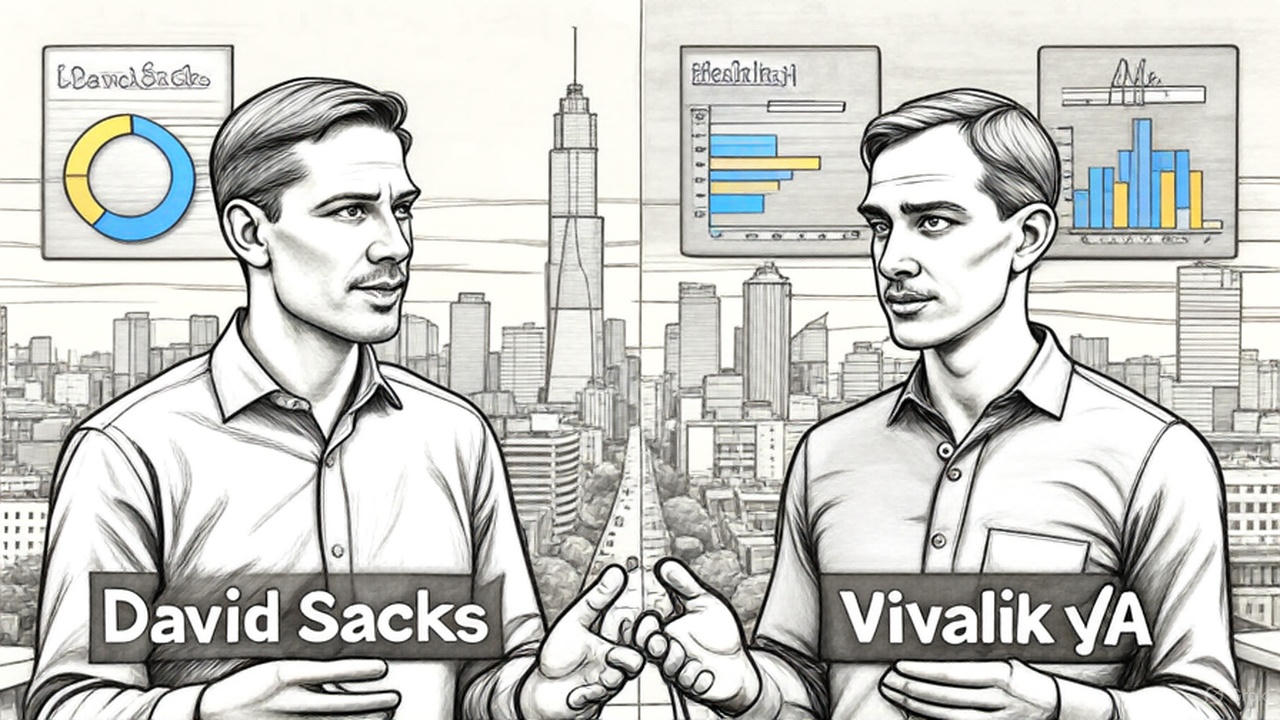
AI, Crypto and the Human Equation - insights from the Sacks-Buterin debate
In a heated exchange on X recently, David Sacks, the White House's AI and Crypto Czar, and Vitalik Buterin, Ethereum's co-founder, reignited an interesting question: Why does the West fear AI, while much of Asia embraces it?
The conversation was more than a social media spat. It reflected a growing divide between two worldviews: one sees that AI fear as a manufactured narrative stifling innovation, and another that views AI skepticism as a natural, even necessary, human reflex.
Sacks began by sharing global survey results showing a sharp contrast in AI optimism:
China: 83% believe AI will do more good than harm
United States: only 39% share that optimism.
He blamed this gap on Effective Altruism (EA) billionaires - wealthy donors funding AI safety movements. In Sack's view, this has fostered a narrative of fear, promoting existential risk and job-loss anxiety to justify tighter regulation. The outcome, he warned, is a permissioned innovation model - one that benefits Big Tech while sidelining open-source developers and start-ups.
This aligns with his broader vision of permissionless innovation in AI and crypto - the idea that progress thrives when regulation follows experimentation, not the other way around. For Sacks, overregulation risks ceding AI leadership to China, where AI development faces fewer hurdles.
Vitalik Buterin pushed back. He argued that skepticism isn't engineered - it is innate. Across history, humans have met every transformation technology with hesitation: from nuclear power to gene editing. Citing Pew Research data, Buterin showed that people support gene therapy to cure disease, but not for editing babies for non-medical traits (intelligence or appearance).
The pattern, he said, isn't propaganda - it is human nature. People instinctively fear technologies that blur moral or existential boundaries. His messages was clear: fear can be rational, especially when the ethical implications are unclear. In follows-up, Buterin extended this to longevity research, decrying views that mass aging/death is "good for society" as outdated moral failures - echoing his calls for ethical AI that empowers humans, not replaces them.
Sacks dismissed Buterin's argument as a "red herring". While conceding that some fear is natural, he claimed EA-funded messaging had amplified it beyond reason. Sacks framed this as a policy red flag: overhyped risks could threaten innovation, hurting crypto-AI hybrids like decentralized prediction markets or AI-driven DAOs that Buterin himself has explored.
Asia's perspective: pragmatism and practice
For Asia, the exchange highlights a unique cultural and policy features. While Western narratives often oscillate between hype and fear, Asian markets tend to focus on practical integration - using AI and blockchain to solve real-world challenges in finance, healthcare and logistics. They contrast sharply. And Sacks-Buterin debate underscore this: while US discourse fixates on existential risk or regulatory capture, China, Singapore, Japan, South Korea prioritize deployment velocity and economic ROI.
The difference of course not lie in capability but in cultural comfort with uncertainty. Neither is inherently right or wrong - each reflects distinct historical experiences with technology and governance.
Ultimately, we believe everyone agree that: AI and blockchain will reshape society. The pace and purpose of that change will depend not on algorithms, but on values. And what should guide all technological progress - is the human factor.
AI can calculate, but it can not care.
Blockchain can secure data, but it can not define value.
As AI grows more capable, the challenge is not merely to control it - but to ensure it reflects the best of human intention. Whether through decentralized ethics, open collaboration or inclusive policy making, the future of AI and crypto must stay anchored in empathy and accountability.
Because innovation without humanity is automation. And progress without trust just speed.
AWAA mission is to advance responsible innovation through education, advocacy and collaboration. Our approach emphasizes that technological progress must remain human-centered.
Join AWAA community for open dialogues and advance digital future, where innovation empowers, connects and uplifts us all.